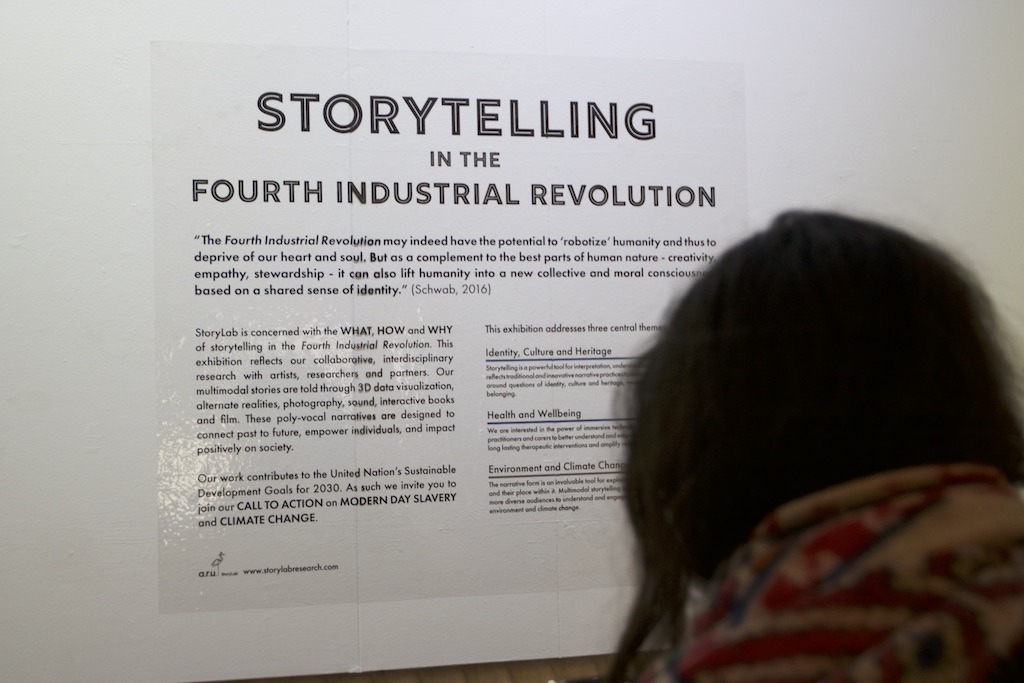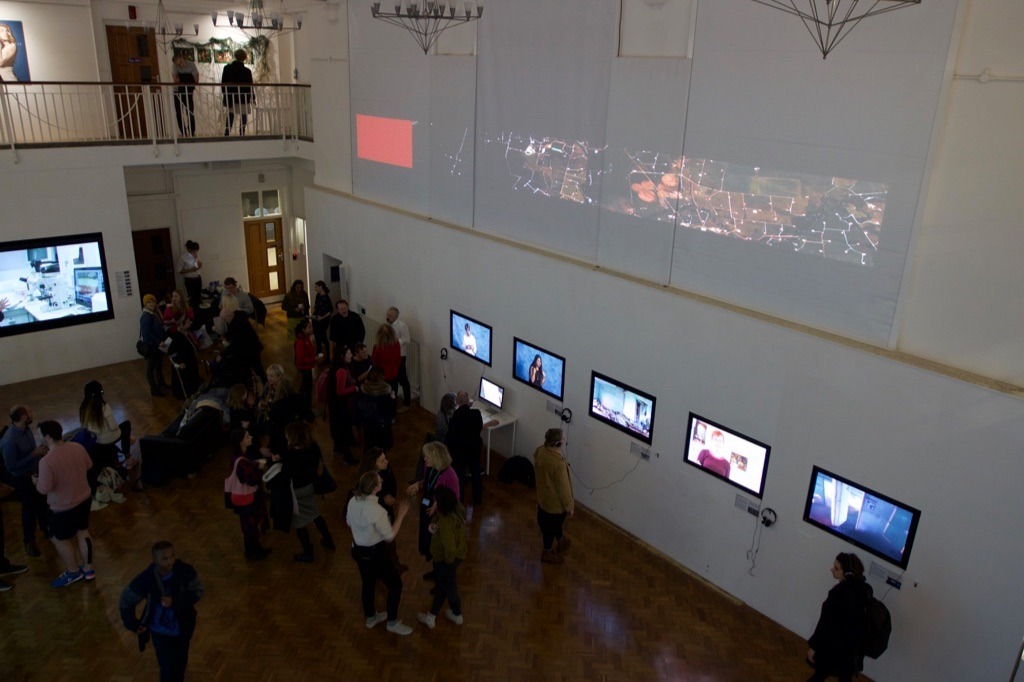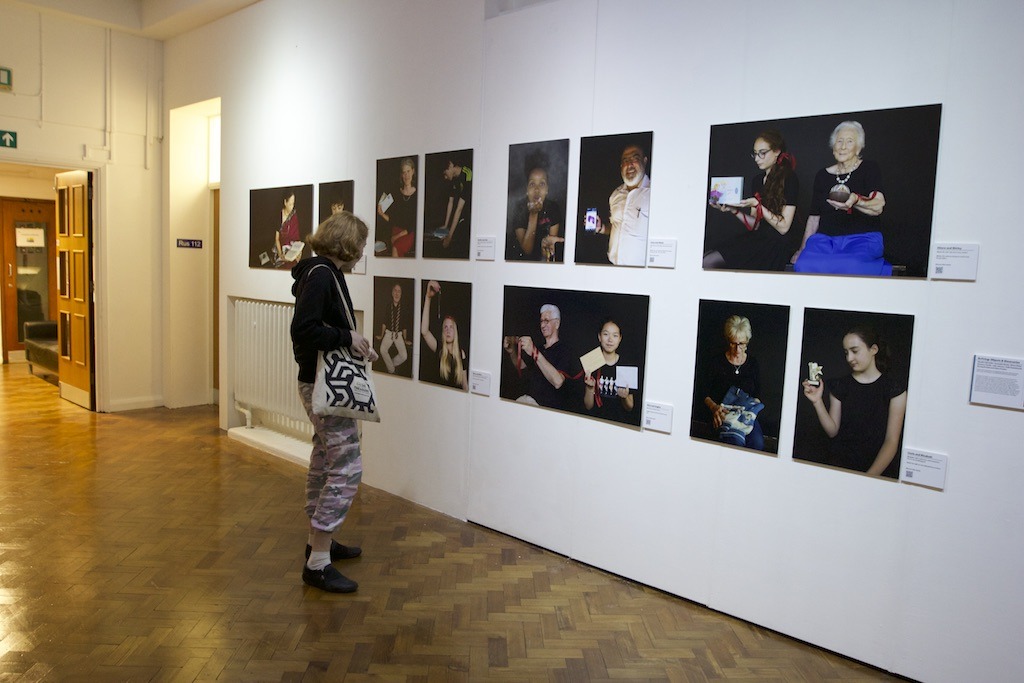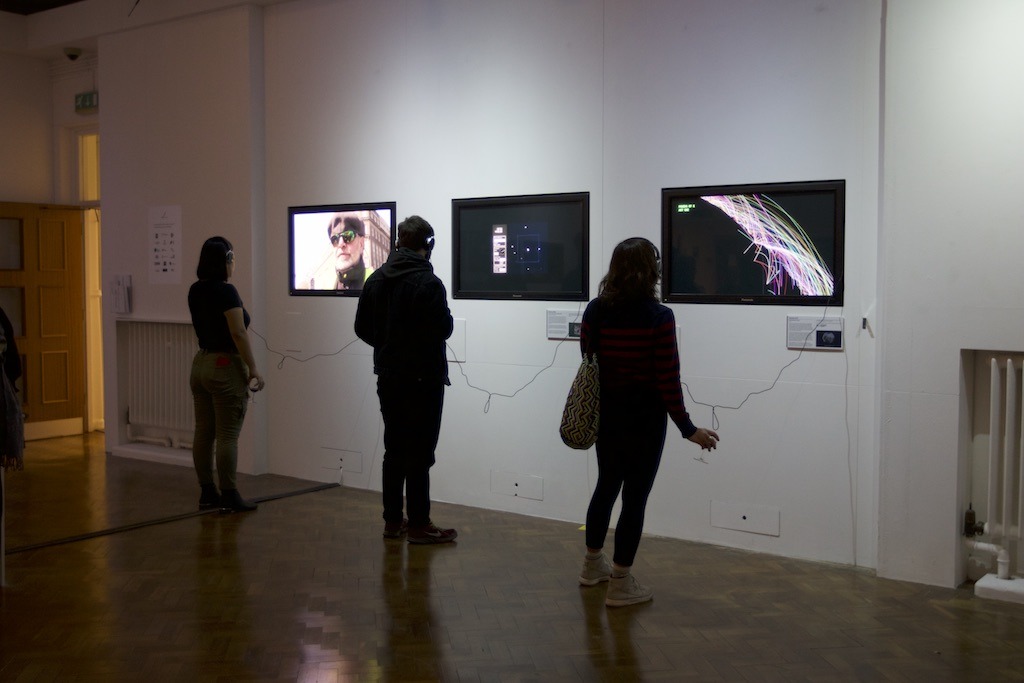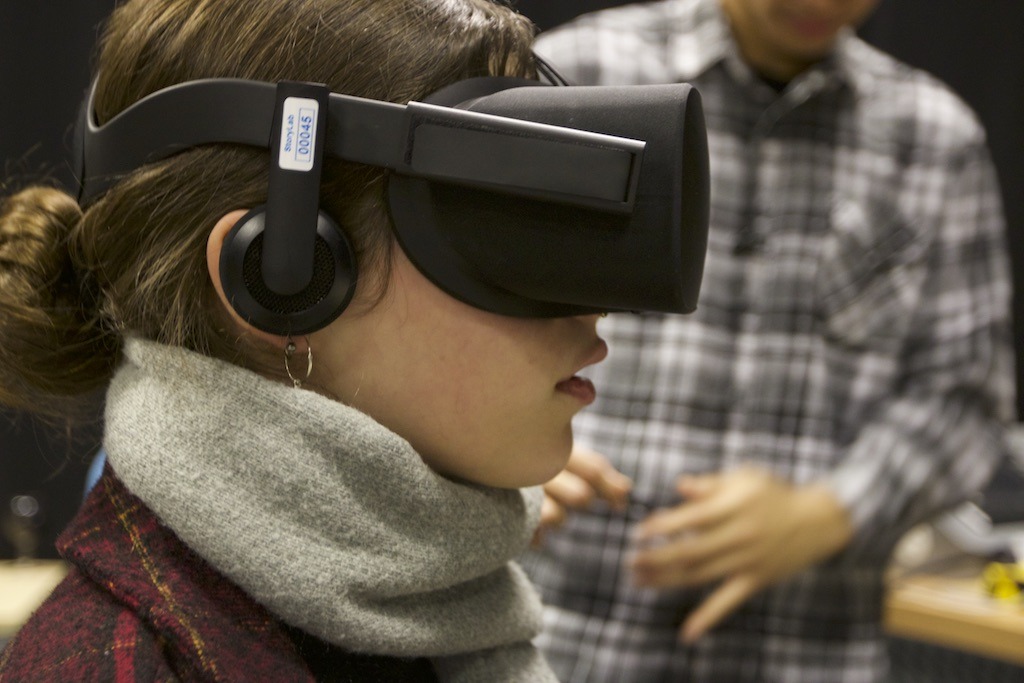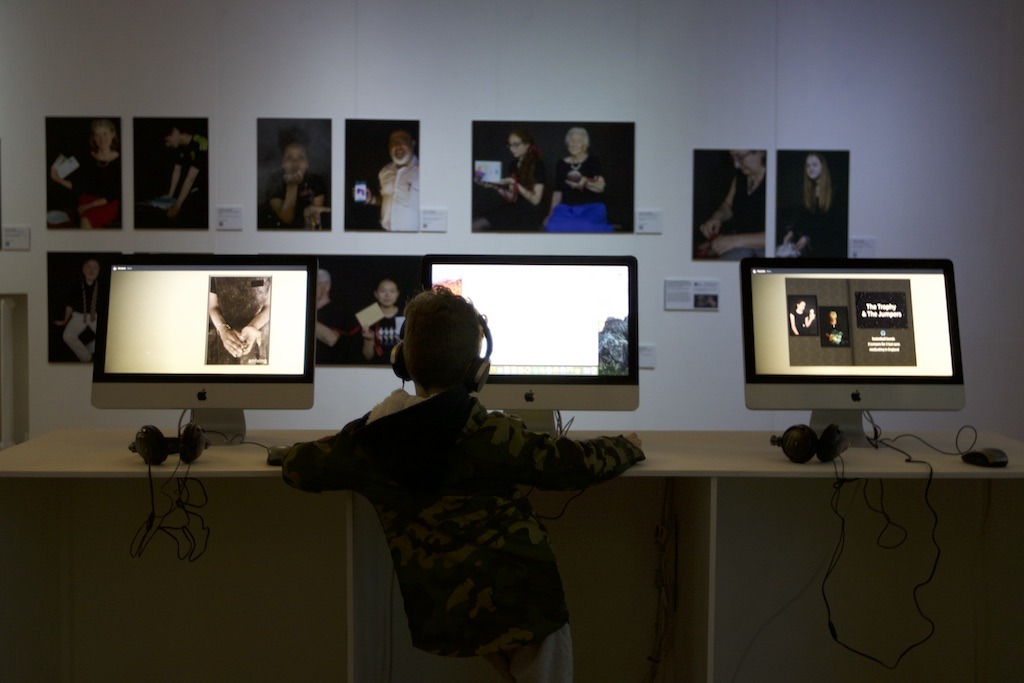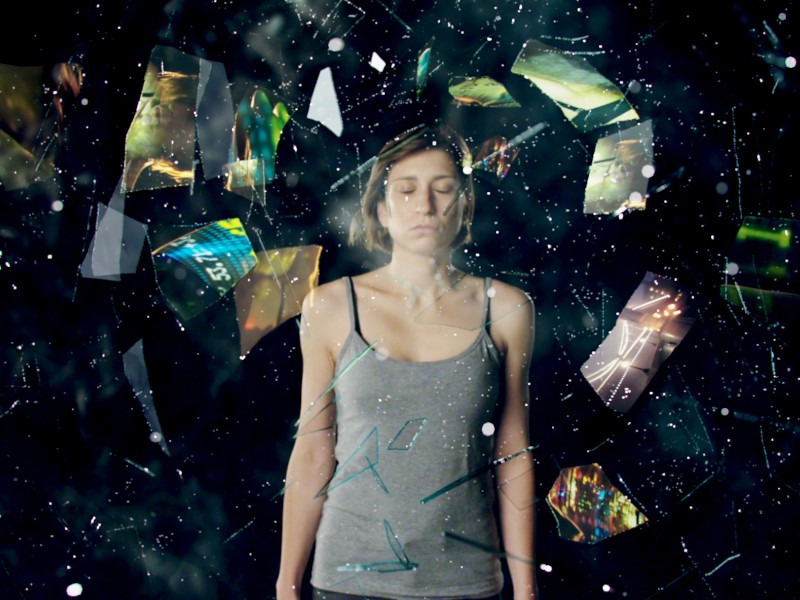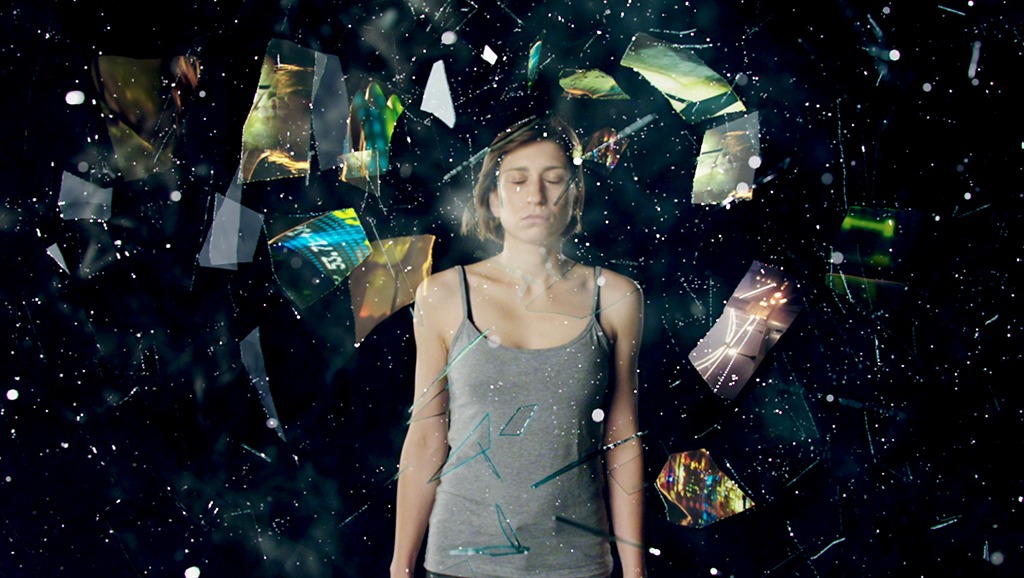
The Fourth Industrial Revolution may indeed have the potential to ‘robotize’ humanity and thus to deprive of our heart and soul. But as a complement to the best parts of human nature-creativity, empathy, stewardship – it can also lift humanity into a new collective and moral consciousness based on a shared sense of identity (Schwab, 2016).
Ruskin Gallery, ARU Cambridge
7th-28th November, Mon-Fri 10-4.30
This exhibition focused on interdisciplinary creative practice methods and processes to address three central themes:
Identity, Culture and Heritage
Storytelling is a powerful tool for interpretation, understanding and change. This exhibition reflected traditional and innovative narrative practices to surface new voices and perspectives around questions of identity, culture and heritage, memory, and a sense of place and belonging. Using existing and emerging immersive creative practice and technologies to reflect on how people perceive, experience and connect with the past, present and future.
Health and Well-Being
We are interested in the power of immersive technologies to positively impact patients, practitioners and carers and promote meaningful behaviour change. For those experiencing mental or physical pain or reduced mobility, experiential stories can offer a form of respite and therapy. For medical professionals and policy-makers, innovative forms of storytelling can help them to better understand and empathise with those they look after and lead to greater effectiveness in treatment plans.
Environment and Climate Change
The narrative form is an invaluable tool for exploring the way people interpret the world and their place within it. Multimodal storytelling is a powerful enabler for broader and more diverse audiences to understand and engage with remote and complex concepts related to the environment and climate change. Immersive and innovative storytelling can engage and connect audiences to reflect on diverse natural environments at a local and global level. Interactive narratives and 3D visualisation bring the data and impacts of climate change to life to educate, motivate and promote action by individuals, organisations and governments, in line with the UN’s Sustainable Development Goals for 2030.
Includes collaborations and work by DFuse, Nowhere Media, Charles and Ray Eames, CatsAreNotPeas, UK Antarctic Heritage Trust, Dr Cathy Elliot and David Parr House, British Antarctic Survey, Rosie Hospital, Eastern Arc, Extinction Rebellion.
An events programme run alongside the exhibition find out more about at the following links
- Private View – 7th November, 5-7pm
- Symposium – 26th November
- RTS Networking -11th November
- Arriving -14th November
